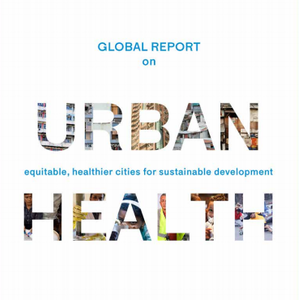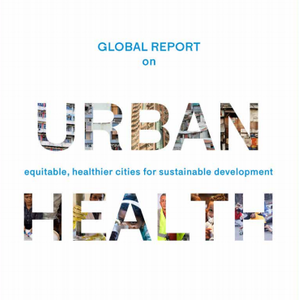Global Report on Urban Health
April, 2016
This timely report by World Health Organization and UN Habitat comes at a decisive moment in history where we can reshape urban environments and health systems for the majority of the world’s population that live in cities. Enabling this transformation are the SDGs, which have reconfigured how governments and the international community need to plan and implement actions to eradicate poverty and inequality, create inclusive economic growth, preserve the planet and improve population health. Central to this quest is to create equitable, healthier cities for sustainable development.
A focus on urban health not only recognizes global demographic trends but the inextricable and inter-dependent links between health, economic productivity, social stability and inclusion, climate change and healthy environments, and an enabling built environment and governance. With half of the anticipated world’s population that will live in cities in 2050 not yet born or living there, we must seize the opportunity to create health systems and environments that enable improved health outcomes and liveable cities.
Robert Muggah, reserach director of the Igarapé Institute, is one of the contributors to this report.
Ver PDF



